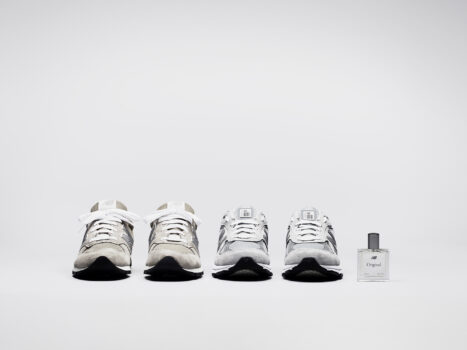 This International Women’s Day, consumers can broadcast their support for gender equality by wearing one of the many limited-edition charity t-shirts that have been released to coincide with the annual event on March 8.
This International Women’s Day, consumers can broadcast their support for gender equality by wearing one of the many limited-edition charity t-shirts that have been released to coincide with the annual event on March 8.
Depending on their personal style, they might opt for Pretty Little Thing’s varsity-inspired range of t-shirts, shorts and sweatshirts sporting slogans like “Go girl” and “Girl gang”, or Lululemon’s “Love” tee featuring the “International Women’s Day after day after day…” print, or Net-A-Porter’s collection of luxury t-shirts from six female designers, including Alexa Chung, Victoria Beckham and Australia’s Kym Ellery.
These are just a few of the International Women’s Day-inspired products on the market, and that’s not even considering other categories, such as Pandora’s limited-edition charms, and Etsy’s “Fearless female” collection, which includes Jane Austen cookie cutters and Marie Curie magnet sets.
You don’t need to crunch the numbers to know that International Women’s Day has become a much bigger event on the retail calendar in recent years, especially for businesses whose core customer is female. While a single social media post wishing customers a “Happy International Women’s Day!” may have sufficed five years ago, that’s no longer the case. If businesses aren’t designing and launching special collections in the lead-up to the event, they’re featuring the voices of employees, customers and activists on their social media channels, or partnering with organisations that support causes related to women around the world.
Which brings us to the charity t-shirt, an offering that seemingly involves the least effort and lowest stakes of any of the above. At a time when more consumers are demanding that businesses take a meaningful stand on social and political issues such as gender equality, can a slogan t-shirt – even one that’s aligned with a cause – really cut it?
A good starting point
“From an awareness perspective, it’s wonderful for people who might not be thinking about issues like gender equality, or might not be engaged. It’s a great way of at least starting that conversation,” says Dr Lauren Gurrieri, a senior lecturer in marketing at RMIT University who focuses on the convergence of gender and consumer culture.
“My concern is where people think that’s the limit of where they should be engaged. If we only have a consumption-based engagement with social issues, we won’t get to the heart of these issues in a meaningful way,” she tells IRW.
To be fair, many retailers selling charity t-shirts understand that it can’t simply be about sales. For instance, in addition to donating the proceeds from its International Women’s Day collection to the World Association of Girls Guides and Girl Scouts, Pretty Little Thing has launched a body positivity campaign under the hashtag #everybodyinPLT featuring alopecia advocate and mentor Danielle Bear, cancer survivor Lauren Mahon and transgender cover girl Giuliana Farfalla as models. (Though the retailer continues to come under fire for selling dresses of such minute proportions that some customers can only fit one leg through the opening.)
Lululemon, alongside its charity t-shirt, has introduced a new paid parental leave policy for employees around the world, which provides four months of leave to new parents who have worked at the company for at least two years, and six months of leave to those who have worked at the company for at least five years. The policy applies to employees at all levels, including in-store staff. This is in line with Lululemon’s International Women’s Day slogan this year, #theother364, which aims to remind consumers that gender equality is not a once-a-year activity.
Still, there are some potential pitfalls to jumping on the charity t-shirt bandwagon without doing your due diligence, since the supply chain for such items is likely to invite greater scrutiny than your average pair of jeans.
Just last week, The Guardian revealed that a British business called F= that claims to be “all about inspiring and empowering girls” was making its charity t-shirts at a Bangladeshi factory, where more than 100 workers claim to have been sacked after striking in protest over low wages. While £10 (AU$19) from the sale of every £28 (AU$52) t-shirt went to support Worldreader, a literacy charity in Africa, the workers who made the t-shirts emblazoned with the phrase “Girl power” were being paid as little as 42p (AU78¢) an hour and had complained of harassment, The Guardian reported.
“It may be that you’re wearing a t-shirt promoting marriage or gender equality, but it was produced in conditions that are disadvantageous to women, or in cultural settings where homesexuality is frowned upon,” Gurrieri says.
An easy win
This dissonance often leads to negative consumer sentiment, but when done authentically, charity t-shirts can be a powerful message to customers that brands are on their same wavelength. For instance, when Gorman and The Iconic released their respective “Love is love” t-shirts in the lead-up to the vote on marriage equality in Australia in 2017, customers scrambled to get their hands on the limited-edition tops.
This may be one reason why charity t-shirts are still so ubiquitous, despite the potential pitfalls. Consumers simply like them.
“They’re an easy win,” Gurrieri says. “The retailer is still able to move product, and the customer is able to represent themselves as a socially engaged individual by literally branding themselves through whatever slogan is on their t-shirt.”
She suggests that charity t-shirts may assuage any guilt people might feel about their consumption behaviour, and it should also be noted that they are easy for brands to make.
Nevertheless, Dora Nikols, director of Social Mission, a PR firm that helps businesses communicate their purpose, cautions retailers against selling charity t-shirts for International Women’s Day, unless they’re already active and vocal about women’s rights.
“My advice is if you are a company that believes in women’s rights and can pass with flying colours if you were to be scrutinised, then shout out about it. But only if it genuinely fits in with your corporate values and culture,” she tells IRW.
“Doing good is never a PR exercise it is a way of living. First do good then talk about it. To boldly promote women’s rights…you first need to walk the talk, otherwise you will be seen as inauthentic and will get called out and even boycotted.”





